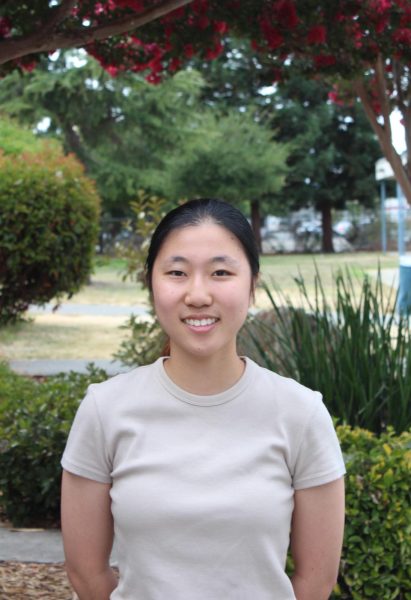The Vegetarian, also known by its Korean title, Chaesikjuuija, was released in 2007 and translated into English in 2015, captivating readers worldwide. It became the first Korean novel to win the Man Booker International Prize, which propelled Han Kang, already a well-known author in Korea, to international prominence. She has since won the 2024 Nobel prize in Literature.
The psychological novel follows main character Yeong-hye as she experiences increasingly disturbing dreams filled with violence and blood, which result in her decision to become a vegetarian. Her attempts at escaping violence and reconnecting with nature soon lead her to reject food entirely. And as her dreams worsen, so does her mental state.
The Vegetarian is composed of three parts, “The Vegetarian”, “Mongolian Mark”, and ”Burning Tree,” each told through the perspectives of her husband, brother in law, and sister, respectively. We are able to see fragments of Yeong-hye’s life and her descent into madness through these outside perspectives. Despite their close relationship to Yeong-hye, their lack of understanding of her is painfully apparent. Yeong-Hye’s own thoughts are rarely revealed; we only get to hear her voice through brief, italicized paragraphs sparsely scattered throughout the book. The gradual deterioration of her mental state and her distorted self perception forces those around her to deal with their own inner turmoil, and reveals the fragility of personal and cultural identities.
The novel is filled with poetic prose and rich, symbolic imagery. Han Kang doesn’t shy away from bizarre, often uncomfortable scenes of sex, domestic violence, and self harm, described in graphic detail. This is certainly one of the more unique books I have read, in part because of its language and execution. Han Kang’s books are well known for their exploration of human psychology and trauma, and The Vegetarian is no different. It’s a memorable read for sure, and one that forces readers to interact with the story.
This novel serves as a critique of Korean culture and its patriarchal society, and a reflection of the perhaps unavoidable nature of human violence. Yeong-hye’s passive resistance to conformity through her refusal of eating meat makes those around her uncomfortable. They try to “fix” her, employing various degrees of violence (disguised as concern,) in their attempts to return her to someone “normal.” When these fail, she finds herself isolated and marginalized. The actions of the men around her and the family dynamics portrayed in the story reflects the societal suppression of female autonomy. However, as Kang herself explains, “this novel isn’t a singular indictment of the Korean patriarchy. I wanted to deal with my long-lasting questions about the possibility/impossibility of innocence in this world, which is mingled with such violence and beauty.” Upon its release in South Korea, The Vegetarian was considered a bold and unconventional book that challenged long-standing social norms.
The English translation of The Vegetarian by Deborah Smith received criticism in Korea after it was awarded the Booker Prize. Some critics claimed the translated version was a betrayal of the original novel, and Smith faced accusations of mistranslation. There were slight errors in translation, and indeed, Smith embellished much of the text. However, while these issues are valid, we must recognize the difficulties of translation; the differences between the English and Korean languages are profound, and a perfect translation is impossible. Perhaps Smith could have made fewer alterations, but the fact remains that the translated novel was a success, helping The Vegetarian reach viewers all over the world. I believe that as long as the translation preserves the themes, tone, and storyline of the original, and provides an accurate cultural representation, alterations are acceptable.
Overall, The Vegetarian is a well written, albeit slightly unnerving tale that explores universal themes of violence and agency. It teaches readers to question societal norms instead of blindly conforming.













